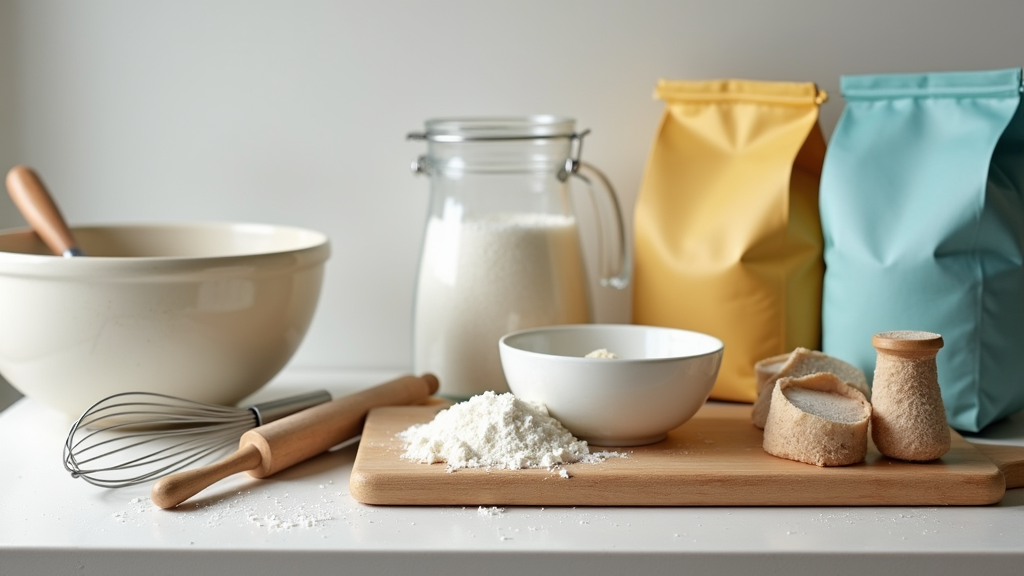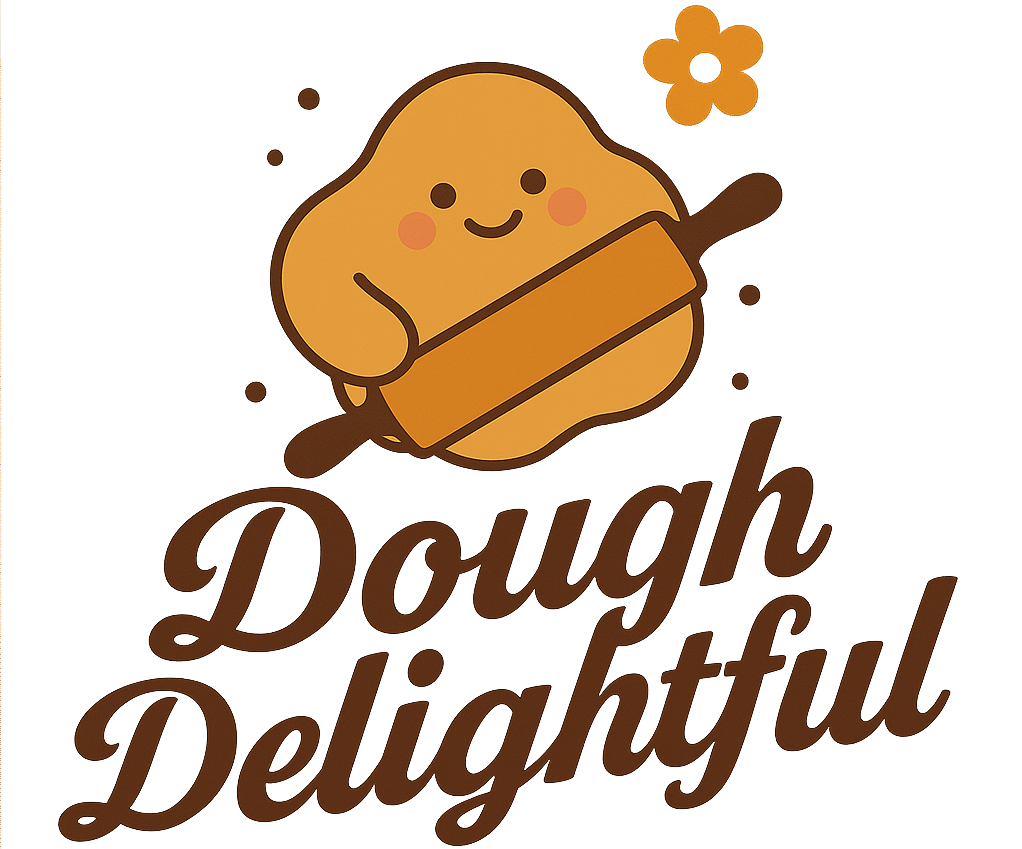Baking at home has a certain charm that’s tough to beat, but stepping into the world of baking for the first time can feel a bit overwhelming. I’ve definitely stared at those shelves full of colorful tools and gadgets, wondering what’s really worth picking up. For anyone just getting started, focusing on the basics makes a huge difference. Today I’m breaking down the core baking tools I’ve found super helpful for anyone new to baking, so you can jump into your first recipes feeling ready and confident.

Why Having the Right Baking Tools Matters
Starting out in baking is a totally different experience when you have the right tools. Good equipment saves time, cuts back on frustration, and helps you get more reliable results. A basic setup is all you need to make cookies, cakes, breads, and even more creative bakes as you get comfortable. The global baking market is on a steady rise, partly because so many people have rediscovered home baking; proof that all you really need is a handful of simple tools to whip up something great.
Baking has a long history in home kitchens and bakeries, with tools growing alongside new recipes and trends. Modern materials like silicone, stainless steel, and nonstick finishes have made things a whole lot easier and more accessible. For beginners, focusing on a starter tool kit is a budget-friendly and practical way to dig in.
Core Baking Tools Every Beginner Baker Should Own
I’ve found there’s a short list of basic equipment that pops up in nearly every recipe. It’s pretty handy to keep these on hand, and as you experiment with more recipes, you’ll see just how often you turn to them. Here’s the lineup I always recommend:
- Measuring Cups and Spoons: Precision is at the heart of baking, so both dry and liquid measuring sets are super important. Using the right tools for flour, sugar, milk, and oils will help your finished treats turn out just like the recipe says.
- Mixing Bowls: A set of nesting bowls in different sizes makes prep work a breeze. Stainless steel, glass, or plastic all work, depending on your style and storage.
- Whisk and Wooden Spoon: A sturdy whisk is perfect for combining wet and dry ingredients, while a wooden spoon is my go-to for mixing thicker batters and doughs.
- Spatula (Silicone or Rubber): Flexible spatulas make scraping down bowls and folding ingredients a breeze, and they’re also handy for spreading batter and frosting.
- Rolling Pin: If you want to make cookies, pie crusts, or even pizza, a rolling pin quickly becomes an absolute staple.
- Baking Sheets and Pans: A rimmed baking sheet is super versatile for everything from cookies to roasting veggies. Cake pans, loaf tins, and muffin pans are great to have as you expand your baking habits.
- Cooling Rack: Getting your baked goods off hot pans and onto a cooling rack helps them cool evenly, avoiding soggy bottoms and unwanted condensation.
Understanding the Uses and Benefits of Each Tool
Knowing how to use these tools helps you avoid guesswork and jump right into baking without any confusion. Here’s a closer look at how I use these basics in my kitchen:
- Measuring Cups and Spoons: Dry cups get filled and leveled for accuracy, while liquid cups have a spout for pouring. Having both types really keeps things precise. I learned the hard way that guessing doesn’t often go well in baking!
- Bowls: Larger bowls are great for mixing dough or batters, while smaller ones hold premeasured ingredients or toppings.
- Whisk and Spoon: A whisk adds air to eggs or batters. A wooden spoon is sturdy enough for thicker cookie dough or bread dough.
- Spatula: Flexing into the corners of mixing bowls, a spatula is my go-to for scraping out every last bit and gently folding in ingredients.
- Rolling Pin: Smooths out doughs evenly, which helps baked items cook evenly and look more professional, too.
- Baking Sheets/Pans: Nonstick or lined with parchment, these go straight from oven to table. Standard sizes make following recipes much simpler.
- Cooling Rack: Helps everything cool down evenly. This keeps the texture right and makes decorating easier later on.
Quick Guide for Building Your Beginner Baking Set
If you’re stocking your kitchen, a good way to start is with the basics and add specialized tools only as you need them. Here’s my step-by-step checklist for new bakers:
- Pick Up the Basics: Start with measuring cups and spoons, mixing bowls, and a sturdy whisk; these three cover most recipes.
- Get a Versatile Baking Sheet: A halfsheet pan works for cookies, pastries, and sheet cakes.
- Choose a Rolling Pin: Classic wooden or modern silicone both work well. For those living in smaller spaces, a French style rolling pin (simple, tapered stick) is a good space saver.
- Add a Muffin or Loaf Pan: Muffin tins are super useful for cupcakes or muffins, while a loaf pan opens up breads and pound cakes.
- Don’t Skip the Spatula and Spoon: These are needed in almost every step, from mixing to scraping and serving.
- Grab a Cooling Rack: It might seem extra at first, but it’s really helpful for quick, even cooling.
Things to Keep in Mind Before Shopping for Baking Tools
Not all kitchen gear is made the same, and it’s easy to get distracted by fancy gadgets that rarely come out of the drawer. I look for durability, ease of cleaning, price, and multiuse options when deciding what to buy. Here are a few tips to make your selections easier:
- Material Matters: Stainless steel is super sturdy, while silicone tools resist high heat and won’t scratch nonstick pans. Plastic can work, but quality matters; nothing’s worse than a spatula that melts on a hot pan.
- Space Savers: Nesting bowls and collapsible measuring cups leave more room for your ingredients and finished treats.
- BudgetFriendly Options: You really don’t need the most expensive brand to get started; midrange tools from reliable brands work just fine for beginners.
- Easy to Clean: Dishwasher safe tools save time, and silicone or stainless options usually wash up super easily.
Specialized Equipment You Can Add Later
Once you get comfortable with the core tools, adding specialty equipment like pastry brushes, bench scrapers, and piping bags can make more creative projects possible. But honestly, I recommend waiting until you know you’ll use them; otherwise they just gather dust in the back of a drawer.
Common Challenges and How to Tackle Them
Everyone runs into some struggles when starting to bake. Here are quick fixes for common hiccups:
- Sticky Dough: Dust your rolling pin and surface with a bit of flour. Silicone mats help a lot, too.
- Uneven Baking: Make sure you use the recommended pan size and rotate your pans halfway if your oven has hot spots.
- Measuring Mistakes: Level off dry ingredients using the back of a knife; this keeps recipes from going sideways.
Pro Tips for Using Baking Tools Like a Veteran
Some little habits make baking smoother and more fun, even with the basics. Here are a few of my favorites:
Read Recipes All the Way Through: Knowing the equipment and steps before starting helps avoid surprises midbake.
Gather Tools in Advance: Setting everything out before you start (“mise en place”) makes the workflow smoother.
Invest in Digital Thermometers: Not just for meat. Breads and cakes benefit from proper internal temperatures, too.
Line Pans with Parchment: A simple sheet of parchment means less sticking and easier cleanup.
These habits make the process more relaxed and cut down on those midbake scrambles to find a missing tool.
Frequently Asked Questions
Here are a few questions I usually hear from friends just starting with baking:
What’s the one tool I really shouldn’t skip?
Answer: Measuring cups and spoons. Good measurements are everything in baking, so these are nonnegotiable.
How do I know if I need silicone, metal, or plastic tools?
Answer: It depends on personal preference and your pans. Silicone is versatile and easy to clean, metal tools last forever, and plastic is fine as long as it’s quality and used on cool surfaces.
Is a stand mixer required for beginners?
Answer: Nope, not at all. Hand mixing with a whisk or wooden spoon does the job for most beginner recipes. Pick up a mixer only if you’re baking in bigger batches or tackling bread and meringues often.
Bringing It All Together: Setting Yourself Up for Baking Success
Starting out in baking becomes way easier and much more fun when you have a basic set of reliable tools. I’ve found that most of the magic happens not with the fanciest gadgets, but with good habits and a sense of curiosity in the kitchen. Over time, you’ll find out which tools you reach for again and again. There’s nothing more satisfying than seeing your bakes come out of the oven looking and tasting great. Happy baking!
